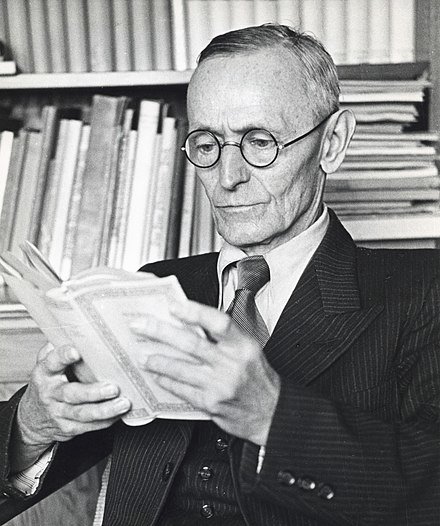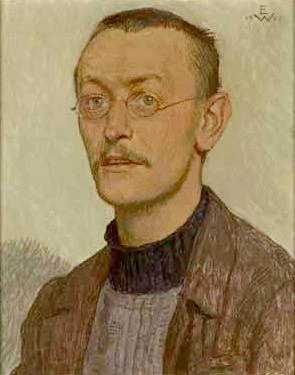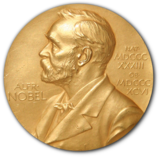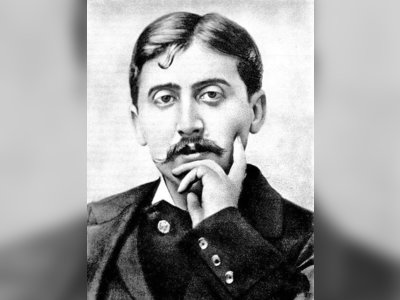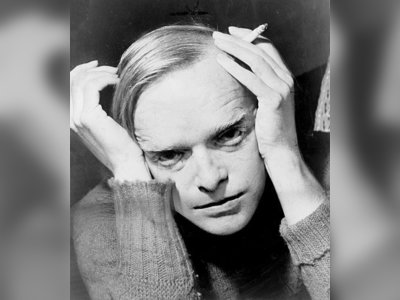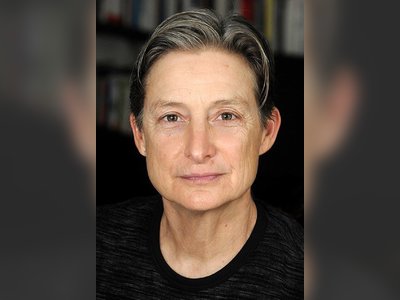מורשת גדולי האומה
בזכותם קיים
beta
Hermann Hesse: The Literary Wanderer
Hermann Hesse, born on July 2, 1877, and passing away on August 9, 1962, was a renowned German writer and poet, celebrated as one of Germany's great literary figures. He immigrated to Switzerland at the age of 42 and spent the rest of his life there. Hesse was honored with the Nobel Prize in Literature in 1946, the Goethe Prize in 1954, and the Peace Prize of the German Book Trade in 1955.
Hesse's works are characterized by moral struggles, often within a single character or between two individuals, and the exploration of one's place in a society that seemed increasingly distant and industrial. His writings bore the deep influence of both Western philosophy, particularly figures like Nietzsche, Spinoza, and Schopenhauer, and Eastern philosophies like Hinduism and Taoism. While not considered an existentialist, Hesse's works engage with existential themes and delve into personal moral dilemmas.
Hermann Hesse was born in Calw, a town in the Black Forest region of Germany, in 1877. His father was a German-Baltic missionary from Estonia, and his mother, born in India, had Indian roots. This early exposure to Indian culture would later manifest in his literary works. Both of his parents were devout Protestants and had hopes of him pursuing a career as a clergyman. Hesse began his education at a Protestant seminary in 1891 but was eventually expelled. After brief stints in various schools, he abandoned formal education and started working as a bookseller and apprentice.
During this time, Hesse immersed himself in the works of Goethe and other German writers. In 1898-1899, he published his first two books, one of which was a collection of poetry. These early works were not translated into Hebrew. His breakthrough came at the age of 27 with the publication of "Peter Camenzind" in 1904.
Shortly thereafter, Hesse married Maria Bernoulli (Gérard). They had three children together. In 1911, he embarked on a trip to India, which left him somewhat disillusioned but later served as inspiration for his novel "Siddhartha."
During the 1910s, Hesse underwent psychoanalysis with Carl Jung. In 1914, he published "Rosshalde," which examined the question of whether an artist should get married, with a negative answer reflecting his own tumultuous marriage.
In the early 1920s, Hesse became involved in humanitarian activities, particularly for prisoners of war, during World War I. These actions earned him the nickname "traitor" among some Germans.
In 1919, he published his seminal novel "Demian" under the pseudonym Emil Sinclair (which is also the protagonist's name in the book). This work marked a turning point in his career and garnered significant acclaim, including praise from Thomas Mann.
In the same year, Hesse left his family and moved to South Switzerland. During this period, he also wrote "Siddhartha," which was published in 1922. In that year, he also published a collection of fairy tales, which was dedicated to his wife, Ruth Wenger (Gérard). Hesse married Wenger in 1924 but divorced her after only a few months. During this turbulent time, he wrote one of his most famous novels, "Steppenwolf," which later inspired the American rock band of the same name.
In 1931, Hesse married Ninon Dolbin (Kathleen). Kathleen, a Jewish woman, had corresponded with him since 1909 when she was just 14 years old. It was during this period that he wrote one of his most renowned works, "The Glass Bead Game" ("Das Glasperlenspiel"), which was published in Switzerland in 1943.
Hermann Hesse vehemently opposed the Nazis and criticized them through his writings and speeches. In 1941, when his novel "Narcissus and Goldmund" was republished, he refused to allow it to be edited to remove sections addressing anti-Semitism. In 1943, he was banned by Nazi Germany.
In 1946, at the age of 69, Hesse was awarded the Nobel Prize in Literature. After this honor, he did not write any more novels but continued to write poetry and essays.
Hermann Hesse passed away at the age of 85 in 1962, just as his works were gaining popularity among young readers in the United States during the 1960s and 1970s. His writings resonated with these "flower children" because of their humanistic and sensitive themes, their anti-establishment and free-spirited approach, and their incorporation of elements from Indian culture.
Hermann Hesse's literary legacy endures, with his books finding a permanent place in world literature. His ability to explore the human condition, spiritual growth, and the search for meaning continues to captivate readers across generations.
Hermann Hesse was born in Calw, a town in the Black Forest region of Germany, in 1877. His father was a German-Baltic missionary from Estonia, and his mother, born in India, had Indian roots. This early exposure to Indian culture would later manifest in his literary works. Both of his parents were devout Protestants and had hopes of him pursuing a career as a clergyman. Hesse began his education at a Protestant seminary in 1891 but was eventually expelled. After brief stints in various schools, he abandoned formal education and started working as a bookseller and apprentice.
During this time, Hesse immersed himself in the works of Goethe and other German writers. In 1898-1899, he published his first two books, one of which was a collection of poetry. These early works were not translated into Hebrew. His breakthrough came at the age of 27 with the publication of "Peter Camenzind" in 1904.
Shortly thereafter, Hesse married Maria Bernoulli (Gérard). They had three children together. In 1911, he embarked on a trip to India, which left him somewhat disillusioned but later served as inspiration for his novel "Siddhartha."
During the 1910s, Hesse underwent psychoanalysis with Carl Jung. In 1914, he published "Rosshalde," which examined the question of whether an artist should get married, with a negative answer reflecting his own tumultuous marriage.
In the early 1920s, Hesse became involved in humanitarian activities, particularly for prisoners of war, during World War I. These actions earned him the nickname "traitor" among some Germans.
In 1919, he published his seminal novel "Demian" under the pseudonym Emil Sinclair (which is also the protagonist's name in the book). This work marked a turning point in his career and garnered significant acclaim, including praise from Thomas Mann.
In the same year, Hesse left his family and moved to South Switzerland. During this period, he also wrote "Siddhartha," which was published in 1922. In that year, he also published a collection of fairy tales, which was dedicated to his wife, Ruth Wenger (Gérard). Hesse married Wenger in 1924 but divorced her after only a few months. During this turbulent time, he wrote one of his most famous novels, "Steppenwolf," which later inspired the American rock band of the same name.
In 1931, Hesse married Ninon Dolbin (Kathleen). Kathleen, a Jewish woman, had corresponded with him since 1909 when she was just 14 years old. It was during this period that he wrote one of his most renowned works, "The Glass Bead Game" ("Das Glasperlenspiel"), which was published in Switzerland in 1943.
Hermann Hesse vehemently opposed the Nazis and criticized them through his writings and speeches. In 1941, when his novel "Narcissus and Goldmund" was republished, he refused to allow it to be edited to remove sections addressing anti-Semitism. In 1943, he was banned by Nazi Germany.
In 1946, at the age of 69, Hesse was awarded the Nobel Prize in Literature. After this honor, he did not write any more novels but continued to write poetry and essays.
Hermann Hesse passed away at the age of 85 in 1962, just as his works were gaining popularity among young readers in the United States during the 1960s and 1970s. His writings resonated with these "flower children" because of their humanistic and sensitive themes, their anti-establishment and free-spirited approach, and their incorporation of elements from Indian culture.
Hermann Hesse's literary legacy endures, with his books finding a permanent place in world literature. His ability to explore the human condition, spiritual growth, and the search for meaning continues to captivate readers across generations.
- הרמן הסהhe.wikipedia.org
